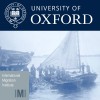THEMIS: Mediating migration: the role of the Qiaoban (the Office of Overseas Chinese Affairs) in the rescaling of the Wenzhou region in China
Based on a multi-sited ethnography, this paper aims to provide a nuanced picture of the meso-level interaction between Chinese migrants, their sending/receiving localities, and the Chinese government through the case of Wenzhou migrants in Paris and the Qiaoban - the "Office of Overseas Chinese Affairs."
The paper begins by presenting the evolving relationship between migrants and the Qiaoban of Wenzhou. The Wenzhou region experienced tremendous growth in the decades following the economic reform of 1978, which allowed for the emergence of new patterns of migration as Wenzhou residents profited from the local informal credit institutions and cheap local goods to take their businesses abroad. The Qiaoban has used this success to promote the Wenzhou development model, particularly through the commemoration of emigrant histories. I then analyze various institutional tools used to establish trans-local linkages. In the sending region, a structured administration and associations for return migrants were established to collect information and provide services for migrants; and, in the receiving country, numerous voluntary associations cultivate networks with political and economic actors. Various summer camps and associations were also created to link younger generations, often born abroad, to Wenzhou. The article concludes by examining the consequences of these initiatives. Despite the Qiaoban's attempts to "rescale" Wenzhou through promoting the "global Wenzhou diaspora" (shijie wenzhouren), interviews with migrants show that the effects vary due to the unequal degrees of development and infrastructure in different sending villages/townships. While the use of the Qiaoban as a political institution to strengthen links and implement policy in the diaspora is not uniformly effective, it does facilitate economic exchange between localities, thus strengthening the trans-local networks between the sending and receiving communities.




